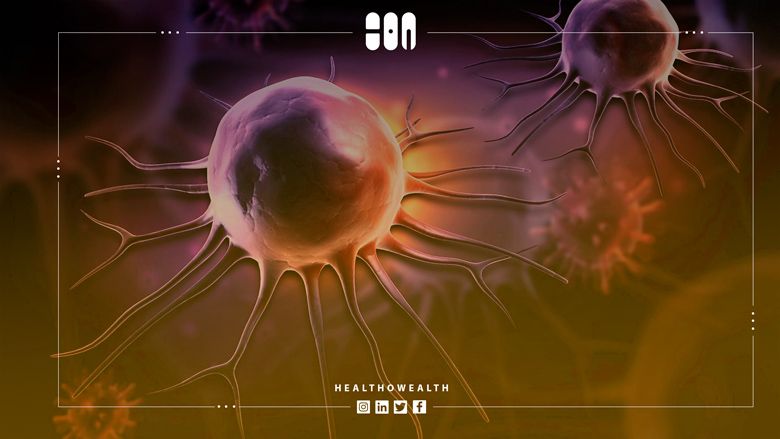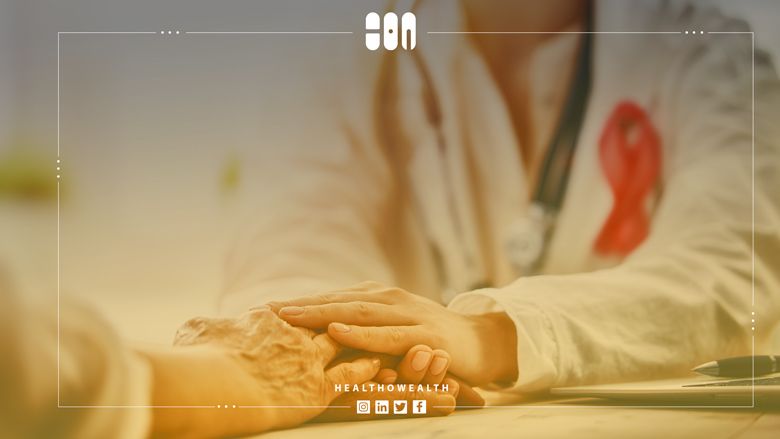
Today, Healthowealth will dispel the most frequent cancer myths and help you offer a response that will keep you informed.
-
What is cancer?
Cancer is a disease that occurs when our body's cells begin to develop abnormally. Cells in our bodies naturally develop and then die when they are no longer needed. However, if a cell develops abnormally and does not die despite the fact that your body does not require it, it becomes cancerous. For gain more information about cancer, you can read what is cancer in Healthowealth.
-
What causes cancer?
Cancer is a group of varied illnesses, and its causes are also diverse. The following are the most prevalent ones that progress to cancer.
- Tobacco smoking and consumption
- Sunlight or industrial radiation exposure
- Physical activity and diet
- Viruses and various types of diseases
-
How many types of cancer are there?
There are about 100 different forms of cancer that we are aware of. Each form of cancer affects a different part of our body and causes distinct symptoms.
-
Why do some people get cancer, while others don’t?
Because there are several forms of cancer, its causes range and vary from person to person. Cancers such as retinoblastoma, breast cancer, and ovarian cancer, for example, have a tiny part of their causes owing to heredity. In other circumstances, a single cell with a lower threshold of malignancy becomes cancerous. This suggests that the individual is more likely to get cancer as a result of triggers such as smoke or sun exposure than a person with a higher threshold who can tolerate more.
-
What are the major chances of getting cancer?
Cancer has become more frequent in recent years, with over 500,000 people diagnosed each year. The majority of cancers are diagnosed in people over the age of 50. Approximately 9 out of 10 malignancies are diagnosed in adults aged 50 and over.
-
Can injuries lead to cancer development?
No! It's a well-known misconception concerning cancer formation. Cancer is connected to more than simply falls, bruising, and broken bones. Cancer can become more severe as a result of certain accidents, but cancer must have already been discovered at the time.
If you still have ambiguities and questions about cancer and the factors that contribute to this disease, refer to the articles on Healthowealth.org.
-
What are the risk factors for cancer?
Cancer risk factors are behaviors or conditions that might raise your chances of having the disease. Here are some well-known risk factors that may be avoided in order to avoid cancer:
- Consumption of Tobacco
- insufficient physical activity
- Obesity
- Inadequate Nutrition
- Consumption of Alcohol
- Exposure to the Sun
- Exposure to substances such as radon, lead, and asbestos in the workplace
- Infections such as hepatitis, HPV, and HIV
-
Can cancer be contagious?
Cancer is produced by a virus, similar to the flu or a cold, but it is not communicable. Most individuals are aware of cancer patients because they are afraid of contracting the disease, however, cancer can never be contracted from anyone. As a result, don't be afraid to be near individuals with cancer; they need your support at such a sensitive time.
-
Can you prevent cancer?
Although cancer cannot be avoided, there are certain changes you may do to make you less likely to acquire it. Here are a few notable changes:
Tobacco: All tobacco products, including cigarettes, pipes, cigars, and oral tobacco products, must be discontinued. It is one of the most common causes of cancer.
Alcohol: Ethanol, which is contained in many alcoholic beverages such as beers, wines, and liquors, has been associated with an increased risk of cancer. As a result, alcohol intake must be restricted or eliminated entirely for the sake of improved health.
Diet: Nutrient-dense and fiber-rich foods are one of the most important variables in cancer prevention. Limiting your diet to processed meat, sugar-sweetened beverages, or highly processed foods, increases your chance of developing cancer.
Yes! The majority of cancer therapies are effective in treating the disease. When cancer is in remission, it shrinks but does not go away. A full remission signifies the end of therapy and the absence of cancer risk. The longer a person's cancer therapy is in complete remission, the less probable it is to return. Our experts on HealthOWealth, after answering the question of “what is cancer ?”, suggest effective ways to prevent and treat cancer.
-
What are the different stages of cancer?
Cancer is classified into four phases. There is even a 0 stage in some. What each step informs you is as follows:
- Stage 0: This is a minor stage in which cancer hasn't spread to any surrounding tissues. Cancers at stages 0 and 1 can be cured.
- Stage 1: It's a symptom of a little tumor or cancer that hasn't spread all the way through the tissues. It's referred to as early-stage cancer.
- Stages 2 and 3: This is the most severe stage, indicating the growth of enormous tumors that have penetrated deeply into the surrounding tissues. Cancer has the potential to spread to lymph nodes as well. However, it is less likely to spread to other organs or sections of the body.
- Stage 4: This is the most dangerous stage of cancer since it has spread to other organs. The most advanced stage of cancer is referred to as this.
-
Does cancer show any symptoms?
There are a few instances of symptoms displaying no symptoms, however, this does not apply to all types. According to the Americain cancer society (ACS), HealthOWealth (HOW), and the World health organization (WHO), the indications and symptoms that are common are restricted to certain types and locations. Because the tumor grows in size, it affects nearby tissues or organs, allowing physicians to predict the kind of cancer. However, there is no optimum indicator that warns you about cancer. It's because many malignancies don't exhibit any symptoms until they've progressed too far. Here are some of the most prevalent cancer signs and symptoms:
- Weight loss that is abnormal
- Discomfort and pain
- Fever & Fatigue
- Changes in the Skin
- Is it bowel movement or bladder function that you're looking for?
- Bleeding abnormally
- Sores that don't heal
- A lump appears in any part of the body
- Indigestion

You don’t come to know enough about cancer with just a few signs and symptoms. It can be a normal disease or a cancerous early stage, it's hard to differentiate with just common symptoms. Hence there are various diagnostic steps available for cancer like x-rays, blood tests, or a biopsy. At some level, a biopsy is the only stage that ultimately assures about the presence of cancer. Healthowealth.org will provide you with good information for more detailed study of cancer diagnosis methods without biopsy.
Surgery, chemotherapy, and radiation are the three basic cancer therapies. Any of the treatments may be effective in a few cases of cancer, while others may require all three. The best cancer treatment is determined by the type of cancer, the location where it occurred, and the stage of the disease. Other important criteria include the patient's health, the treatment's negative effects, and many more.
-
Are there any side effects of cancer treatment?
Yes! Each sort of cancer treatment has its own set of complications. It's impossible to predict the side effects you'll experience. There are, however, therapies for treating or reducing the discomfort produced by side effects. Cancer treatment is difficult for many people, and the side effects can make it even more difficult. However, side effects are not always severe; some are moderate and treatable. Here are some of the most prevalent cancer side effects:
- Side Effects of Chemotherapy
- Vomiting and nausea
- Appetite loss.
- Hair loss is a common problem.
- Sores in the mouth
- Anemia
- Infection risk is higher.
- Side effects of radiation
- Inflammation of the skin
- Fatigue
If you need more comprehensive information on what is cancer, check out our website, www.healthowealth.org, to learn more about this disease.
 icons at the top right corner of the subsection.
icons at the top right corner of the subsection.